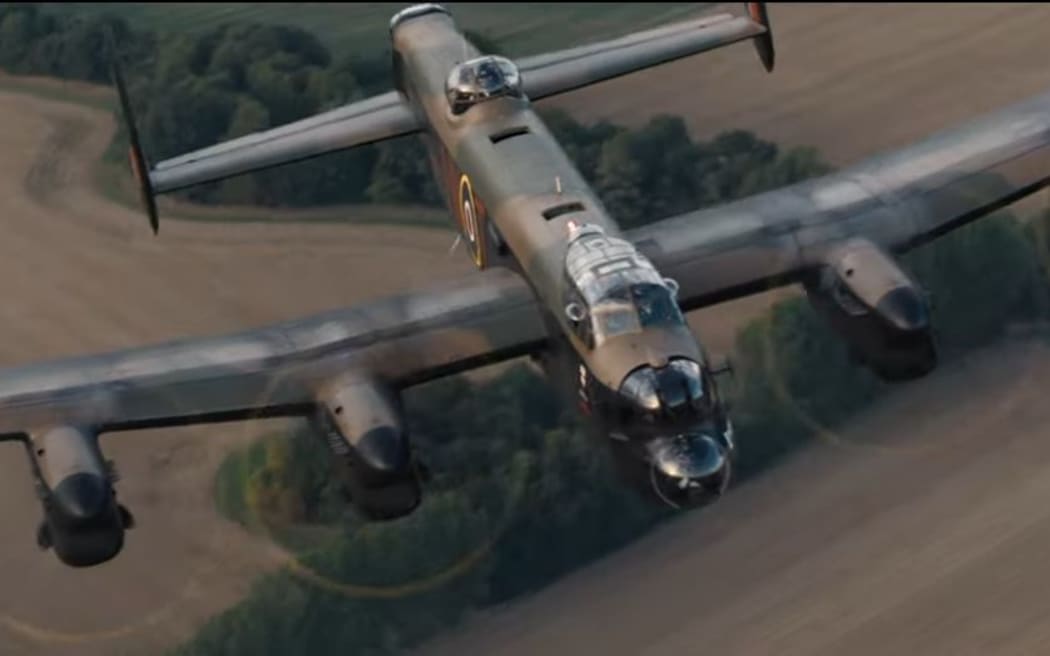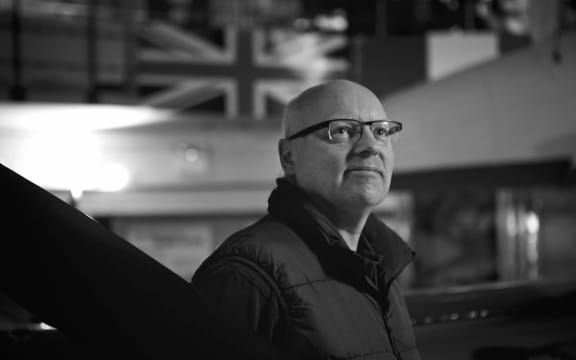World War II has probably inspired more films, plays, novels and documentaries than any other 6-year period in history.
But there's no substitute for the accounts of the people who were there. Now, with the last participants in their nineties and even older, those first-hand accounts are coming to an end.
A couple of years ago, the documentary Spitfire told the story of the fighter planes and their pilots who won the Battle of Britain and inspired the nation to help win World War II.
But it was later British planes - the Lancaster bombers - that did much of the heavy lifting, and their story is finally told in Lancaster. It's likely to be the last eye-witness account to be made about the war.

Photo: Screenshot
Like Spitfire it was co-directed by David Fairhead and Anthony Palmer.
When they decided to tell the story of bomber command they realised they had to move quickly, co-director Anthony Palmer tells Simon Morris.
“When we decided that we wanted to do the Lancaster film, I remember sitting down and just working out by going on the internet, the age of some of these Lancaster crews.
“And I was quite shocked, because I thought we've really got to move quickly, the average age then and we're talking three years ago was about 96, approaching 97,” Palmer says.
They did 38 interviews with veterans of the Lancaster squadrons over the course of about two years, Palmer says.
The surviving members of the bomber crews have very sharp recall of the events 8 decades ago, he says.
“It's extraordinary that at the age of 96 they are able to so eloquently recount those quite horrific memories of what they had to endure in those dark days.”
The attrition rate was huge among the crews, but they were never lauded like the fighter pilots were, he says.
“One of our veterans says that once he went to a reunion and in the car on the way back his wife said to him, you've never mentioned any of that. And he said I couldn't, I couldn't talk about it. I couldn't talk about it because if I did, I was treated as if I was a murderer.
“And so, for a lot of these guys after the war, they just shut down.”
Participating in the film was tough for many of the veterans who had buried these memories away, he says.

Co-Director Anthony Palmer Photo: supplied
“One guy, Peter Kelsey, he was one of the first interviews we did, he sat down, and he said to us, ‘I've not talked about this for all 30, 40 years or more.
And during the interview, he kept saying to us, I just can't believe how much I'm remembering. And the day after David called him and said, are you all right? And he said, ‘I'm afraid I didn't sleep a wink last night, because it's all just come back’.”
In another moment in the film a veteran says; “When I put my head on the pillow tonight, I will see flak bursts around me.”
Britain realised its bomber fleet was underpowered and so an engineer named Roy Chadwick was tasked with building a new long-range bomber, it didn’t start well, Palmer says.
“His first design, which was the Manchester, was unfortunately floored by its terrible engines, which meant that it kept crashing.
"But rather than scrapping the whole thing, he persisted, and managed to get the Lancaster off the ground by effectively swapping those engines, Rolls Royce engines, for the same engine that powered the Spitfire, the Merlin and with that and some design modifications came an aircraft that would go on to change the course of the war.”
Lancaster is released throughout the country on 1 September.

